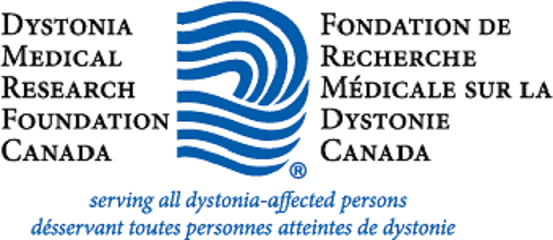There is no single strategy for living well with dystonia that works for everyone. The following suggestions have been compiled from healthcare professionals, individuals with dystonia, and support leaders. Please work with your doctor to ensure you have created a plan that works well for your unique circumstance.
SEEK OUT EXPERT HEALTHCARE PROVIDERS
It often takes a team of experienced professionals to diagnose and treat dystonia. This may include a movement disorder neurologist, physical therapist, psychiatrist, counselor and others.
For a list of Movement Disorder Specialists click here to search by province.
For a list of specialists that treat children and teens with dystonia, click here.
For a list of Mental Health Organizations by Province, click here
ACTIVELY PARTICIPATE IN YOUR TREATMENT
Learn about dystonia. Make informed choices about your care with the input of your medical team.
DEVELOP A MULTI-LAYERED SUPPORT SYSTEM
Seek out supportive family and friends, local dystonia support groups, online support groups, community events and self-help resources. Enlist the help of a psychotherapist or counsellor to help navigate concerns and vulnerabilities. Click here for a list of Canadian Certified Counsellors and Psychotherapists.
LISTEN TO YOUR BODY
Respect and honor your individual need for sleep, nutrition, exercise, relaxation and time/scheduling.
CAUTIOUSLY EXPLORE COMPLEMENTARY THERAPIES
Talk to your Doctor about non-traditional therapies that interest you. Different approaches may work for different people but keep in mind that numerous practitioners and outfits falsely claim to have a unique ability to treat dystonia.
EXERCISE
The benefits of exercise can be profound. Consider working with a physical therapist to develop an exercise plan that works for you. You can contact the Canadian Physiotherapy Association to learn more.
SEEK HELP WHEN YOU NEED IT
If you need assistance, reach out and be specific about what you re having trouble with. Accept help when offered and without guilt.
TREAT ANXIETY AND DEPRESSION
Depression and anxiety can dramatically impact quality of life and the severity of motor symptoms. Consider being evaluated for depression and/or anxiety and, if symptoms are present, seek treatment. If you aren't comfortable speaking with your Doctor, make sure you speak to a parent, teacher or friend. Click here for a listing of a variety of resources to help manage anxiety and depression.
BE MINDFUL OF STRESS
Being a teenager is stressful. Regular stress reduction and relaxation practices can have a positive impact on symptoms and overall well being. Consider taking a light yoga or meditation class to try to reduce stress in your life.
REMAIN AS ACTIVE AND SOCIAL AS POSSIBLE
It may be physically and / or mentally demanding to go certain places or complete specific tasks. Plan, pace yourself, and rest when needed.
